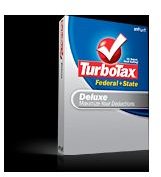Self-Employed? How to Use Turbo Tax for Self-Employment Taxes
Introduction
Unless you’ve been completely avoiding the news lately, you know that several of President Barack Obama’s appointees have had some issues with taxes. One of those has been Timothy Geithner, who said that he did not recall Turbo Tax alerting him that he had to pay self-employment taxes, giving Turbo Tax a bit of a bad rap.
For those of us who are self-employed (at-home contractors, business owners, etc.), many have been scared off of using Turbo Tax to do our axes for fear of being audited or owing vast amounts of money in back taxes. But, before you decide to load up all your receipts, 1099 forms and donation slips and head off to Jackson Hewitt, you should know that Turbo Tax is perfectly safe to use.
Self-employment Tax
Before we get into Turbo Tax’s pros and cons, let’s do an overview of the self-employment tax. Why do we have to pay these taxes, and what is this tax exactly?
When you become self-employed, you take on the full burden of paying for your social security and Medicare taxes. You are no longer sharing these taxes with your employer. As an employee, your employer pays for half of the amount. So, when you no longer work for an employer, your taxes go up. Here’s how the taxes are broken down.
1. Social Security - 12.4 percent. This tax is applied to the first $106,800 of your income for your 2009 self-employment taxes.
2. Medicare - 2.9 percent. Medicare is always 2.9 percent no matter how much you earn.
These two taxes combine to form a 15.3 percent tax on your total self-employment income. So, although it seems like you are paying more than you would if you were an employee, you can take a lot more deductions on your income since you are now paying for everything yourself. That new computer is a deduction. A business lunch is a deduction. If you travel for work, or use part of your house as a home office, it’s a deduction. And, Turbo Tax will help you with those deductions.
For more information on possible deductions, see Tax Write-Offs for Home Based Businesses.
Safety of Turbo Tax
Now onto Turbo Tax itself. Despite all the seemingly bad press in the news lately, Turbo Tax is quite safe to use. In fact, it’s almost impossible to not have the self-employment tax calculated if you are self-employed.
Basically, Turbo Tax will ask you if you have received a 1099 or a W2 form from an employer. If you enter 1099, Turbo Tax knows that you are self-employed and will generally (it only happens on rare occasions that it won’t do this) automatically add your self-employment tax to what you owe.
If you try to enter zero for your taxes, Turbo Tax will warn you that you could be audited or owe back taxes. Turbo Tax will help you through your deductions so that you get the biggest refund or pay the least amount of taxes as possible. Turbo Tax is just as safe to use as going to a tax professionals.
But, just like tax professionals are not infallible, neither is Turbo Tax. Glitches or errors may occur. This could happen just as often, however, if you hand-write your taxes or have an outside party do them.
Overall, the only way to skip the self-employment tax is to not put in that you receive a 1099. As long as you do this, Turbo Tax will calculate all your taxes for you automatically.
For a review of the Turbo Tax software, read the Turbo Tax Software Review by Jennifer Wingard.
